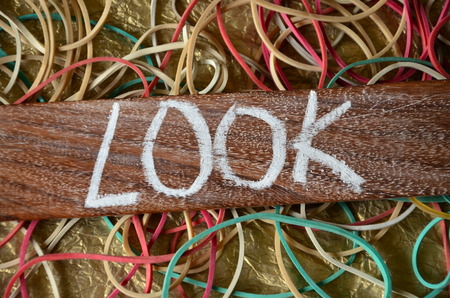1. Introduction: The Curious Case of Falling Teeth Dreams
It’s a chilly morning in London, and you’re sipping your first cup of builder’s tea when a friend leans over and confides, “You’ll never guess what I dreamt last night—my teeth were crumbling right out of my mouth!” You both chuckle, but soon the conversation turns serious as others around the table share their own uncanny tales of molars loosening or canines tumbling onto the floor. It seems almost everyone in Britain has had this peculiar dream at least once. Whether you grew up in the bustling heart of Manchester or along the windswept coasts of Cornwall, the sensation of waking up and checking your teeth is oddly familiar. But why do so many Brits—and indeed people across cultures—find themselves haunted by dreams of falling teeth? Is it just the result of a late-night cheese toastie, or is there something deeper at play? In this article, we’ll journey through the cobbled streets of cultural folklore and peer into the shadowy corners of modern psychology to unravel why these toothy nightmares are so common in the UK. Grab your cuppa, settle in, and let’s explore what these dreams might truly mean beneath their unsettling surface.
2. Historical and Folk Beliefs in the UK
To truly understand the significance of teeth falling out dreams in the UK, we must journey back through centuries of folklore, regional superstitions, and the quiet wisdom whispered through generations. Britain’s patchwork of local traditions holds a rich tapestry of interpretations for dental dreams, each thread coloured by history, geography, and the ever-changing tides of belief.
The Ancient Roots of Dental Dream Symbolism
In medieval Britain, dreams were seen as messages from other realms—warnings, omens, or glimpses into one’s future. Dreams about teeth were no exception. Across many counties, losing teeth in a dream could portend a death in the family or signal an impending misfortune. This association with mortality may have been fuelled by high infant mortality rates and limited dental care, making tooth loss a tangible harbinger of decline.
Regional Variations: North to South
The diversity of British folklore means that the symbolism of teeth-related dreams varies dramatically across regions. For instance:
| Region | Traditional Interpretation |
|---|---|
| Northern England (Yorkshire & Lancashire) | Dreaming of teeth falling out is believed to predict gossip or family secrets coming to light. |
| Scotland | Such dreams often signify an upcoming major life change or transformation—sometimes for better, sometimes for worse. |
| Wales | A sign that someone close may fall ill; it’s customary to share the dream with a neighbour to ward off bad luck. |
| Southwest England (Cornwall & Devon) | Losing teeth in dreams is sometimes thought to foretell financial worries or a warning to be more careful with money. |
The Evolution of Belief: From Superstition to Symbolism
With the spread of Enlightenment thinking and advances in psychology, many of these ancient superstitions have softened or faded away. Yet echoes remain in local sayings and family stories. Today, while fewer people may fear a literal tragedy after such a dream, there lingers a gentle curiosity—a sense that our subconscious might still be tapping into something older than memory itself.

3. Modern Psychological Theories
When we turn our attention from folklore to the realm of modern psychology, teeth falling out dreams are viewed through a distinctly different lens. Many UK-based therapists and dream analysts suggest that these unsettling dreams are less about omens and more about the intricate workings of our subconscious minds. Stress, anxiety, and deeply rooted fears often manifest in symbolic ways during sleep, with teeth falling out being one of the most vivid expressions.
The Language of Anxiety
Within British psychological circles, teeth-related dreams are frequently interpreted as signals of underlying stress or tension. The fast pace of modern life in cities like London or Manchester, coupled with societal pressures around appearance and success, can seep into our dream world. When teeth crumble or fall out in a dream, it may reflect anxieties about losing control or concerns over one’s image—issues that resonate with many living in the UK today.
Subconscious Fears Revealed
Therapists across Britain often note that such dreams surface during periods of significant change—perhaps starting a new job, moving house, or navigating relationship challenges. For some, these dreams echo worries about ageing or vulnerability; for others, they may point to fears about not being heard or understood. Teeth, after all, play a crucial role in communication—a loss in this area can symbolise deeper social anxieties unique to the individual’s lived experience within British society.
Personal Stories from UK Therapy Rooms
British clients have shared stories where recurring teeth falling out dreams coincided with stressful events such as public speaking engagements or important interviews. UK therapists typically encourage dreamers to explore what personal meaning these symbols might hold for them, rather than relying solely on universal interpretations. By tuning into both the emotional tone and context surrounding these dreams, individuals can gain valuable insights into their subconscious concerns and start to address the root causes of their nightly distress.
4. Cultural Narratives: What Does It Mean To Brits Today?
In the tapestry of contemporary British life, dreams of teeth falling out are woven with threads both old and new. While echoes of superstition linger in quiet corners, modern interpretations often reflect a society in flux—one that balances rational thought with an undercurrent of mysticism. Let’s wander through the realms of social media, literature, and daily banter to see how these dreams are perceived by today’s Brits.
Social Media: Shared Worries and Humour
The digital landscape has become a confessional for dreamers across the UK. On platforms like Twitter and Reddit, people openly share their bizarre nocturnal visions, seeking comfort or explanation from strangers. These conversations oscillate between light-hearted memes—“Dreamt all my teeth fell out last night, guess I’m due a trip to the dentist!”—and deeper discussions about stress or insecurity. The anonymity of social media allows for honest storytelling and collective sighs of relief as users realise they’re not alone in their strange experiences.
Literature: From Symbolism to Satire
British literature has long been home to rich symbolism, and dreams have featured as metaphors for everything from personal transformation to societal decay. Modern authors often use the motif of teeth falling out to signal vulnerability, loss, or transition. In satirical works, it may even serve as commentary on national anxieties—be it concerns about public health services or shifting cultural identity in post-Brexit Britain.
Everyday Conversation: Tea, Toast, and Dream Analysis
In day-to-day life, dream-sharing remains a gentle ritual among friends and family. Over tea or at the pub, recounting a vivid dream is met with a blend of curiosity and playful scepticism. “Maybe you’re worried about your job,” one mate might tease; another may offer the classic British remedy—“You just need a good night’s sleep.” It’s this pragmatic yet whimsical approach that defines how many in the UK interpret such dreams today.
Common Interpretations Among Brits
| Context | Typical Interpretation |
|---|---|
| Social Media | Anxiety, humour, shared experience |
| Literature | Symbolism of change, satire on society |
| Everyday Conversation | Stress at work/life, health worries, dismissed with wit |
Cultural Blend: Rational Meets Mystical
This interplay between seriousness and satire captures something quintessentially British—a knack for navigating discomfort with understated humour while quietly probing for deeper meaning. Dreams of teeth falling out continue to be interpreted through both rational lenses (stress or health anxiety) and more mystical ones (omens of change), reflecting a culture comfortable with paradox.
5. Intuitive Perspectives: Listening to Your Inner Wisdom
In the heart of British culture, where stoicism often meets subtle wit, there lies an invitation for us to trust our inner voice—a gentle nudge to look beyond logic and listen to what dreams truly whisper. When you dream of your teeth falling out, it’s easy to reach for folklore or psychological theory, but sometimes the most profound guidance comes from within. The British are known for their understated intuition, that quiet “gut feeling” you might sense while sipping your morning tea or walking along a misty path in the countryside. This is not about superstition, but about honouring your own emotional landscape and the stories your subconscious tells.
Consider how your dream made you feel upon waking: Was there embarrassment at a social gathering, or relief as if letting go of something old? These emotional echoes hold unique meaning for each person. In Britain’s rich tapestry of tradition and modernity, there’s space to blend practical sensibility with spiritual curiosity. Rather than seeking a one-size-fits-all answer, reflect on what teeth mean to you personally—do they represent security, confidence, or perhaps vulnerability?
Dreams are deeply personal; their symbols shift shape depending on our life experiences. By listening closely to your own reactions and insights, you begin to uncover messages tailored just for you. Take time to journal after such a dream—write down the details and sensations before rushing into analysis. You might be surprised at how clarity arises from this mindful pause.
Trusting your intuition doesn’t require abandoning reason; rather, it’s about weaving together your head and heart. British wisdom often lies in understatement—so too does dream interpretation. Allow yourself to sit quietly with your feelings and let your inner guidance lead you towards understanding. Sometimes, the answers are already within, waiting for you to notice them amid the bustle of daily life.
6. Navigating Your Dream: Practical Tips and Reflections
Teeth falling out in dreams can leave you waking up with a strange sense of vulnerability—or curiosity. In the UK, where wit often meets wisdom at the kitchen table, there’s a unique way to process these unsettling nocturnal visions. Whether you’re more inclined towards a psychological approach or drawn by the call of intuitive symbolism, here are some grounded and culturally-savvy steps for understanding your dream.
Pause and Reflect: The British Way
Before jumping to conclusions, take a moment with a cuppa to reflect on what’s been happening in your life. Are you feeling anxious about a big change? Is there something left unsaid that’s gnawing away at your peace of mind? Sometimes, just acknowledging these feelings—perhaps jotting them down in a notebook—can bring surprising clarity.
Connect With Familiar Symbols
In UK culture, teeth often symbolise confidence, social standing, or even class. Ask yourself: have recent events made you question your place or self-image? Remember, there’s no shame in vulnerability; it’s part of the human experience, from Newcastle to Cornwall.
Balance Logic With Intuition
While psychological theories offer insight into stress and self-esteem issues behind such dreams, don’t discount your intuition. Did the dream carry an emotional charge or feel like a message? Trust those subtle nudges—they’re as much a part of you as your morning brew.
Share and Seek Perspective
If you feel comfortable, share your dream with someone you trust—a mate at the pub or even online forums dedicated to dream interpretation. Often, hearing another perspective—especially one shaped by British humour or candour—can help you see things differently.
Create Your Own Ritual
Consider simple rituals for closure: perhaps rinsing your mouth mindfully in the morning, imagining worries washed away. Or write down the dream and safely burn the paper—a symbolic act cherished in many local folk traditions.
Ultimately, dreaming of teeth falling out invites us to listen deeply to ourselves. By blending practical reflection with intuitive openness—and sprinkling in a dash of British sensibility—you may discover that these dreams are less about fear and more about growth. Cherish them as reminders that even in uncertainty, you have the wisdom to navigate what comes next.


